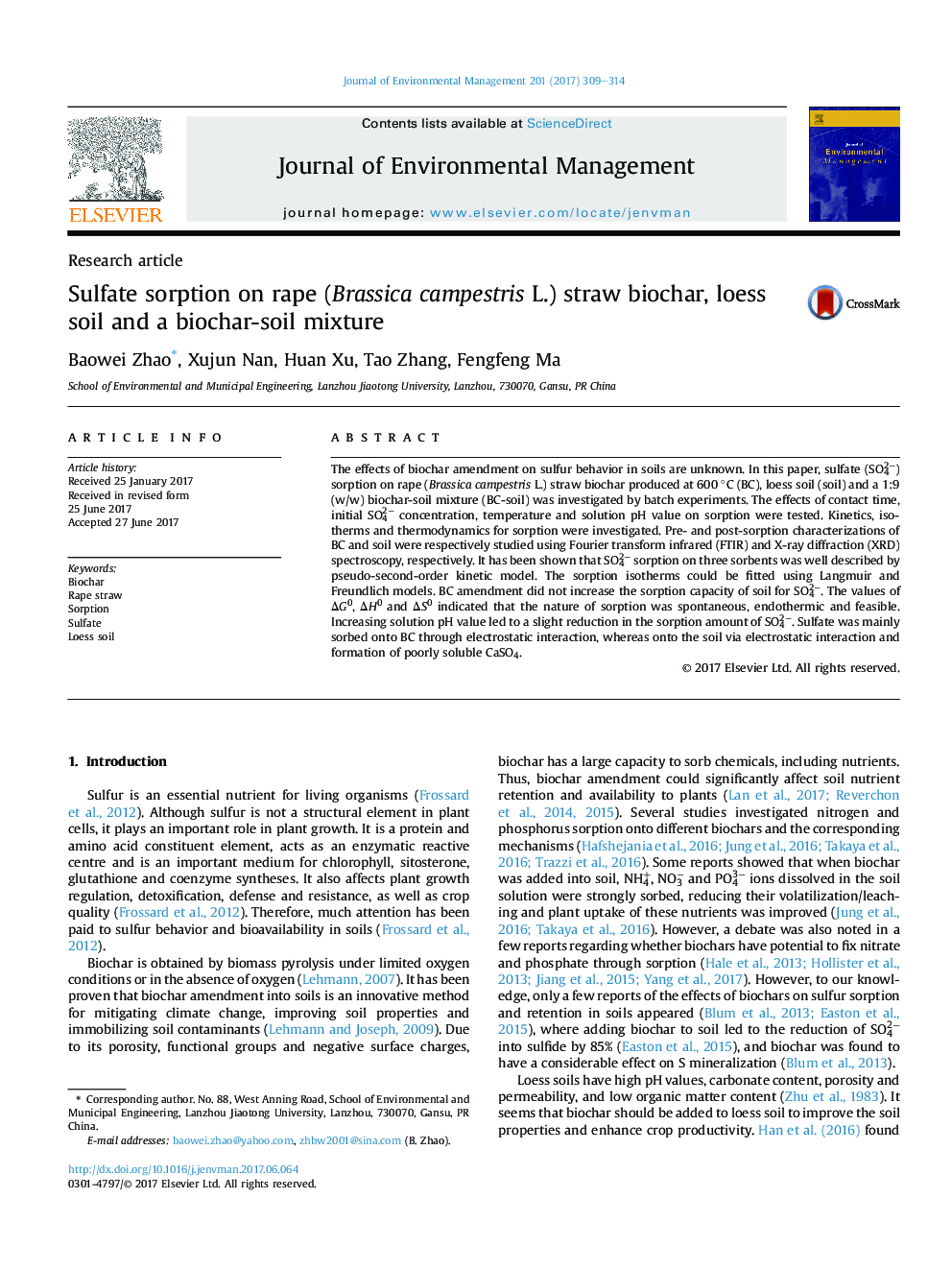| Article ID | Journal | Published Year | Pages | File Type |
|---|---|---|---|---|
| 5116586 | Journal of Environmental Management | 2017 | 6 Pages |
Abstract
The effects of biochar amendment on sulfur behavior in soils are unknown. In this paper, sulfate (SO42â) sorption on rape (Brassica campestris L.) straw biochar produced at 600 °C (BC), loess soil (soil) and a 1:9 (w/w) biochar-soil mixture (BC-soil) was investigated by batch experiments. The effects of contact time, initial SO42â concentration, temperature and solution pH value on sorption were tested. Kinetics, isotherms and thermodynamics for sorption were investigated. Pre- and post-sorption characterizations of BC and soil were respectively studied using Fourier transform infrared (FTIR) and X-ray diffraction (XRD) spectroscopy, respectively. It has been shown that SO42â sorption on three sorbents was well described by pseudo-second-order kinetic model. The sorption isotherms could be fitted using Langmuir and Freundlich models. BC amendment did not increase the sorption capacity of soil for SO42â. The values of ÎG0, ÎH0 and ÎS0 indicated that the nature of sorption was spontaneous, endothermic and feasible. Increasing solution pH value led to a slight reduction in the sorption amount of SO42â. Sulfate was mainly sorbed onto BC through electrostatic interaction, whereas onto the soil via electrostatic interaction and formation of poorly soluble CaSO4.
Related Topics
Physical Sciences and Engineering
Energy
Renewable Energy, Sustainability and the Environment
Authors
Baowei Zhao, Xujun Nan, Huan Xu, Tao Zhang, Fengfeng Ma,
